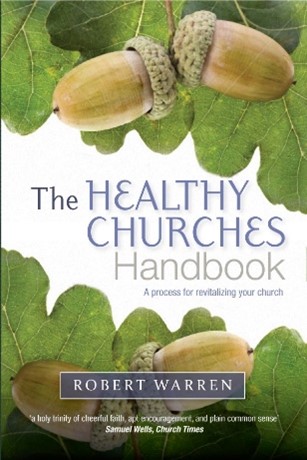
Here in the Diocese of Coventry, enabling Healthy Churches has been a key focus for many years. This focus has been shaped by the Natural Church Development movement.
The Natural Church Development (NCD) movement, founded by Christian A. Schwarz, defines a healthy church based on the idea that church growth is a natural result of health rather than the primary goal itself. According to NCD, a healthy church is characterized by eight essential qualities that reflect the principles of life and growth in a community of faith.
These qualities are:
- Empowering Leadership: Leaders who delegate and support members, helping them to develop their gifts and take on responsibilities. These leaders focus on empowering others rather than just doing everything themselves.
- Gift-Oriented Ministry: Encouraging members to serve in areas that match their spiritual gifts. When people are serving in roles suited to their gifts, they are more effective and fulfilled.
- Passionate Spirituality: The church's members live out their faith with enthusiasm and passion. Their personal and communal spiritual lives are characterized by fervent prayer, worship, and a genuine relationship with God.
- Functional Structures: The church’s structures and systems are designed to support its mission and facilitate growth. This involves being flexible and adapting to changing needs rather than being rigid or bureaucratic.
- Inspiring Worship Service: Worship services that are vibrant, inspiring, and connect people with God. These services are meaningful and impactful, encouraging attendance and participation.
- Holistic Small Groups: Small groups that foster holistic personal growth and accountability. These groups provide a setting for deeper relationships, spiritual growth, and support.
- Need-Oriented Evangelism: Evangelism that meets the needs of people and addresses their questions and concerns. This approach focuses on understanding and responding to the specific needs of individuals rather than a one-size-fits-all strategy.
- Loving Relationships: The presence of genuine, loving relationships among church members. The church community is characterized by mutual care, respect, and support, reflecting the love of Christ.
The Revd Clive Hicks is the diocesan Healthy Churches Development Enabler. When describing a healthy church he says:
"The principles of NCD are as relevant today, as they were ten years ago. Loving relationships are foundational to our churches (toxic, critical cultures can lead to serious problems). Where small groups exist in churches - allowing greater intimacy and pastoral support as well as missional focus - there can be a real buzz of genuine concern and fresh energy. There are, of course six other qualities to consider, and my own interest when I encounter a church is to appreciate the whole culture, and how inter-connected everything is in reality. The white centre to the NCD diagram (green, red and blue) – a space held in this diagram by ‘Empowering Leaders’ – is the aim in all that we do, and is therefore also profoundly related to God as Creator, Jesus Christ (the Son) and the Holy Spirit, all three, in line with biblical truth.

Roger Matthews said that healthy leaders give priority to the important (not just the urgent), they don’t need to be involved in everything, they point away from themselves to develop teams, they will have flexible but firm boundaries (even Jesus was very often absent and unavailable!), and since God is always pointing forwards it is important for them not to dwell on the past (Isaiah 43.18-19). (Healthy Leaders and Healthy Churches, Grove Booklet L13, 2013)
Of course, there are many other ways to look at a ‘healthy church’, and recently I have been stressing three things – to value diversity (for myself appreciating different spiritualities), have clear missional intent and be attentive to the specific needs and preferences of those who are missing from our churches. The diocese has connected healthy church with the state and use of church buildings, there is also the imperative for churches to be ‘safe places’. The financial health (and patterns of giving) in each church are another facet, how a church serves the most vulnerable including those with specific needs (trauma awareness is one such area, with refugees and asylum seekers, and those with special needs), and how the church reaches out in times of crisis and community breakdown. How are the poorest and richest alike valued and included, how are children and young families welcomed and included? I love the line in the Kevin Costner film “Field of Dreams” “If you build it, he will come” – I think it speaks to us as churches to prepare and plan and act to welcome all that we can include, even though we may not see them yet!

Personally, I find Bob Warren’s summaries for healthy churches very relevant. Over twenty years ago some people in the diocese remember him leading sessions at the cathedral. His seven marks for healthy churches are (i) that churches are energised by faith, (ii) are outward-looking, (iii) seek to find out what God wants (listening prayer is crucial), (iv) face the cost of change and growth, (v) operate as a community, (vi) make room for all (that radical hospitality, respectful of differences) and (vii) ‘do a few things and do them well’ (our busiest churches do well to heed this challenge, but also smaller churches that are discouraged and less able to face change …. I urge churches I work with to “start with a few things”.) The acorns are a good image for this."
To find out more about Healthy Churches and for advice, contact Clive.